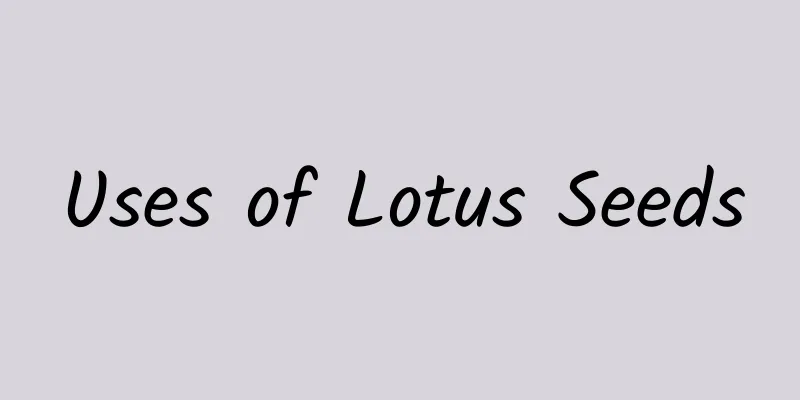The role of vitamin C

|
Speaking of vitamin C, I believe many people are familiar with it. Vitamin C is a relatively important substance for our human body. Generally speaking, our normal human body needs a large amount of vitamin C to maintain cell production and metabolism, etc. In addition, it can also supplement the various energy and nutrients needed by our body. So what are the functions and effects of vitamin C? What foods can help us absorb vitamin C? In fact, vitamin C has many functions and effects. In addition to improving our body's immune ability, it can also play an anti-oxidation, anti-aging, detoxification, and even has anti-cancer effects and functions. Below I will give you a detailed introduction to the functions and effects of vitamin C.Vitamin C is the abbreviation commonly used for vitamin C. Vitamin C, also known as L-ascorbic acid, is a water-soluble vitamin. Vitamin C in food is absorbed by the upper small intestine. Once absorbed, it is distributed to all water-soluble structures in the body. The normal adult's body has approximately 1500 mg of vitamin C in its metabolically active pool, with a maximum storage peak of 3000 mg of vitamin C. Under normal circumstances, most of the vitamin C is metabolized into oxalic acid in the body or combines with sulfuric acid to form ascorbic acid-2-sulfate and is excreted in the urine; the other part can be directly excreted from the body through urine. Foods rich in vitamin C There are many fresh vegetables and fruits rich in vitamin C, such as kiwi, cantaloupe, green pepper, cucumber, tomato, pakchoy, fresh dates, raw pears, oranges, cabbage, grape juice, orange juice, strawberry, red dates, etc. Among them, kiwi is known as the king of vitamin C; followed by jujube and papaya; tomatoes and peppers among fruits and vegetables are rich in vitamin C. Recommended supplementary amount: Eat more than 250 grams of fruits and vegetables every day. Don’t worry about overdose, because vitamin C is a water-soluble element, excess vitamin C will be excreted through urine and sweat. Because it is easily lost, you must consume it every day and don't think that taking a single vitamin C snack will last for many days. Vegetables with higher vitamin C content include: Chinese mustard, shepherd's purse, green garlic, cauliflower, red bell pepper, hot pepper, garlic sprouts, radish, lettuce, cabbage, etc., which can be chosen first. Fruits that contain more vitamin C include: kiwi, cherry, citrus, fresh dates, hawthorn, strawberry, pineapple, persimmon, pear, etc. The main sources of vitamin C are fresh vegetables and fruits. Rapidly growing plants are high in vitamin C. Many fruits and vegetables in our country contain high levels of vitamin C. In addition, potatoes and sweet potatoes are also good sources of vitamin C. Therefore, if you eat enough vegetables and fruits regularly, vitamin C deficiency will generally not occur. The role of vitamin C 1. Improve the body's immunity: Vitamin C can enhance the chemotaxis and deformation power of neutrophils, improve bactericidal ability, promote the formation of lymphoblasts, and improve the body's recognition and killing of foreign and malignant cells. In addition, vitamin C participates in the synthesis of immunoglobulins, promotes the production of interferon, interferes with the transcription of viral messenger RNA, inhibits viral proliferation, and improves the body's disease resistance in many ways. Therefore, during the cold season, you can supplement vitamin C appropriately to prevent and treat respiratory infections and prevent colds. 2. Participate in the synthesis of collagen: The human body is composed of cells, and the connection between cells is connected by the intercellular matrix. The key component of the intercellular matrix is collagen. Collagen accounts for 1/3 of the body's protein and is involved in the formation of connective tissue, which constitutes the body's support. Vitamin C plays an important role in the synthesis of collagen. If vitamin C is deficient, it will lead to cell connection disorders, micro-capillaries will easily rupture, and blood will flow into adjacent tissues. If this condition occurs on the skin, it will cause congestion and purpura; if it occurs in the body, it will cause pain and joint swelling; in severe cases, there may be bleeding in the stomach, intestines, nose, kidneys and under the periosteum, and even death, so it is called scurvy. The main component of the gum soft tissue that wraps each tooth is also collagen. When there is a lack of vitamin C, gum atrophy and bleeding are likely to occur. The skin will also become rough and lose elasticity due to the reduction of collagen (this is why vitamin C has the effect of beautifying the skin). 3. Antioxidant effect: Free radicals produced by oxidative damage to the body can invade various human cells and DNA, leading to cancer; invading blood vessels will accelerate arteriosclerosis; invading the lens of the eye will cause cataracts, etc. Therefore, anti-oxidation is an important measure for health preservation and disease prevention. Vitamin C is a powerful antioxidant that can protect other antioxidants, such as vitamins A and E, from oxidative damage; it can inhibit the generation of lipid peroxide free radicals, block lipid peroxidation, and prevent free radicals from harming the human body. 4. Participate in the metabolism of cholesterol: Vitamin C can promote the hydroxylation and excretion of cholesterol, prevent the deposition of cholesterol on the inner wall of the artery, and play a role in preventing arteriosclerosis. 5. Promote the absorption of iron, calcium and folic acid: Iron in food is divided into heme iron and non-heme iron. Heme iron is divalent iron and has a higher absorption rate. Non-heme iron is trivalent iron and needs to be converted into divalent iron in the body before it can be absorbed by the body. Vitamin C can reduce trivalent iron to divalent iron, thereby promoting iron absorption. Heme iron accounts for 40% of animal meat, and the absorption rate can reach 20%~25%; while the non-heme iron in plant foods has a lower absorption rate of about 1%~3%. The residents of our country mainly eat plant-based food, so eating more foods rich in vitamin C is very important for iron absorption, and it is also a good way to prevent and treat iron deficiency anemia. The basic condition for calcium to be absorbed is that it is in a soluble state in the digestive tract. Vitamin C can form an acidic medium in the stomach, preventing the formation and precipitation of insoluble calcium complexes and promoting the absorption and utilization of calcium. Vitamin C can reduce folic acid into biologically active tetrahydrofolate, which facilitates the absorption and utilization of folic acid and prevents the occurrence of megaloblastic anemia. Therefore, it is best to take vitamin C while taking iron, calcium or folic acid supplements. 6. Detoxification: Vitamin C is known as a universal detoxifier. It can promote the formation of liver glycogen, which plays an important role in liver detoxification. Harmful heavy metal pollution of the environment is a common problem at present, and vitamin C can directly participate in the detoxification process of heavy metals, which can effectively prevent the toxic effects of harmful heavy metals such as lead, cadmium, and mercury on the human body. 7. Anti-cancer: The antioxidant effect of vitamin C can resist the damage of free radicals to cells and prevent cell mutation; it can block nitrite and secondary amine from forming strong carcinogen nitrosamine. In addition, vitamin C promotes the synthesis of collagen, which helps prevent the spread of cancer cells. Benefits of Vitamin C 1. Treat injuries, burns, and bleeding gums. 2. Accelerate recovery after surgery. 3. Helps lower blood cholesterol. 4. Prevents virus and bacterial infections, has anti-cancer effects; enhances immune system function, and helps prevent the formation of nitrosamines (carcinogens). 5. Can be used as a natural laxative. 6. Reduce the occurrence of blood clots in veins. 7. It can treat the common cold and has a preventive effect; it can make protein cells firmly aggregate together, thereby prolonging life. 8. Increase the absorption of inorganic iron and prevent scurvy. After reading the above detailed introduction to the functions and effects of vitamin C, I believe that you all have a general understanding of vitamin C. The effects and functions of vitamin C are very significant. It can treat various diseases, such as bleeding gums, lowering blood cholesterol, etc. It can also effectively prevent common diseases such as colds and fevers. Therefore, you might as well eat more fruits and vegetables rich in vitamin C to improve our physical fitness. |
<<: Nervous system microcirculation therapy
Recommend
Is loofah a traditional Chinese medicinal material?
In life, there are many types of Chinese medicina...
Pregnancy forty days leucorrhea increase
After women become pregnant, the estrogen level i...
Can pregnant women eat Gastrodia elata? There are many dietary taboos during pregnancy
Gastrodia elata can effectively invigorate qi and...
Abortion sequelae
Nowadays, there must be many women who have had a...
What are the functions of Nattokinase? Functions and usage of Nattokinase
Nattokinase, as the name suggests, is a substance...
Treatment of acute pharyngitis
The treatment of acute pharyngitis cannot be igno...
What happens if you ejaculate too much sperm?
Men's physical health includes many aspects, ...
What to do if you have an itchy throat and dry cough
Many friends have experienced or had the symptoms...
Common causes of chronic cough
I believe everyone is familiar with the symptom o...
Dragon Tongue Leaf Lung-Nourishing Soup
Longlangye lung moistening soup requires the use ...
Treatment for sciatic nerve
As people enter old age, the bones of most people...
When to take ascarid medicine
Children's body resistance is not as good as ...
What diseases might frequent oral ulcers be a sign of?
In our real life, oral ulcers are a very common o...
Can Polygonatum be eaten?
Polygonatum sibiricum is a traditional Chinese me...
What to do if your child gets chickenpox
When spring comes, children's bodies begin to...









